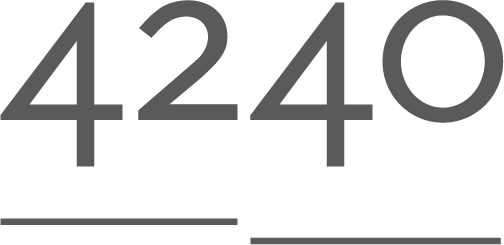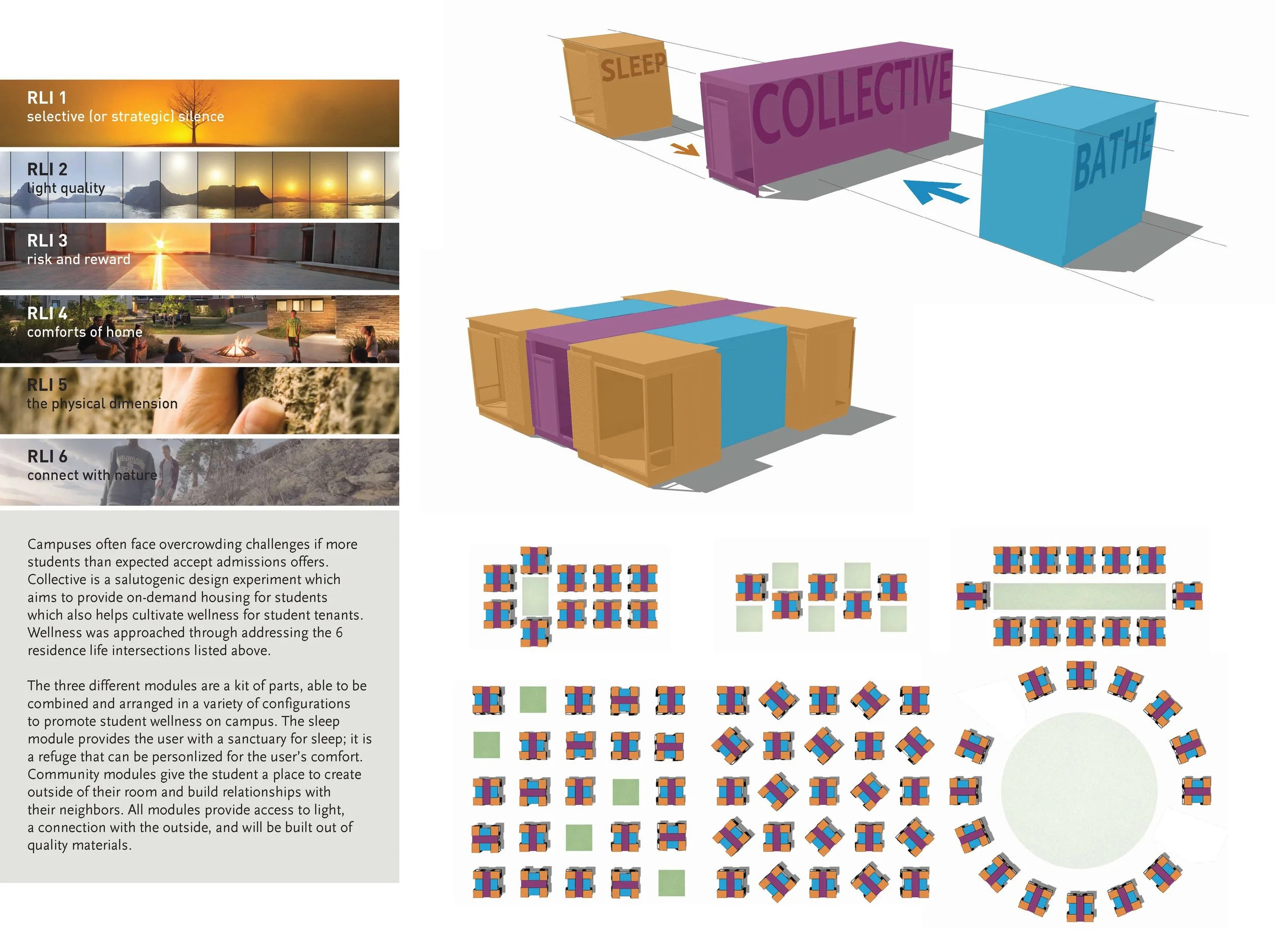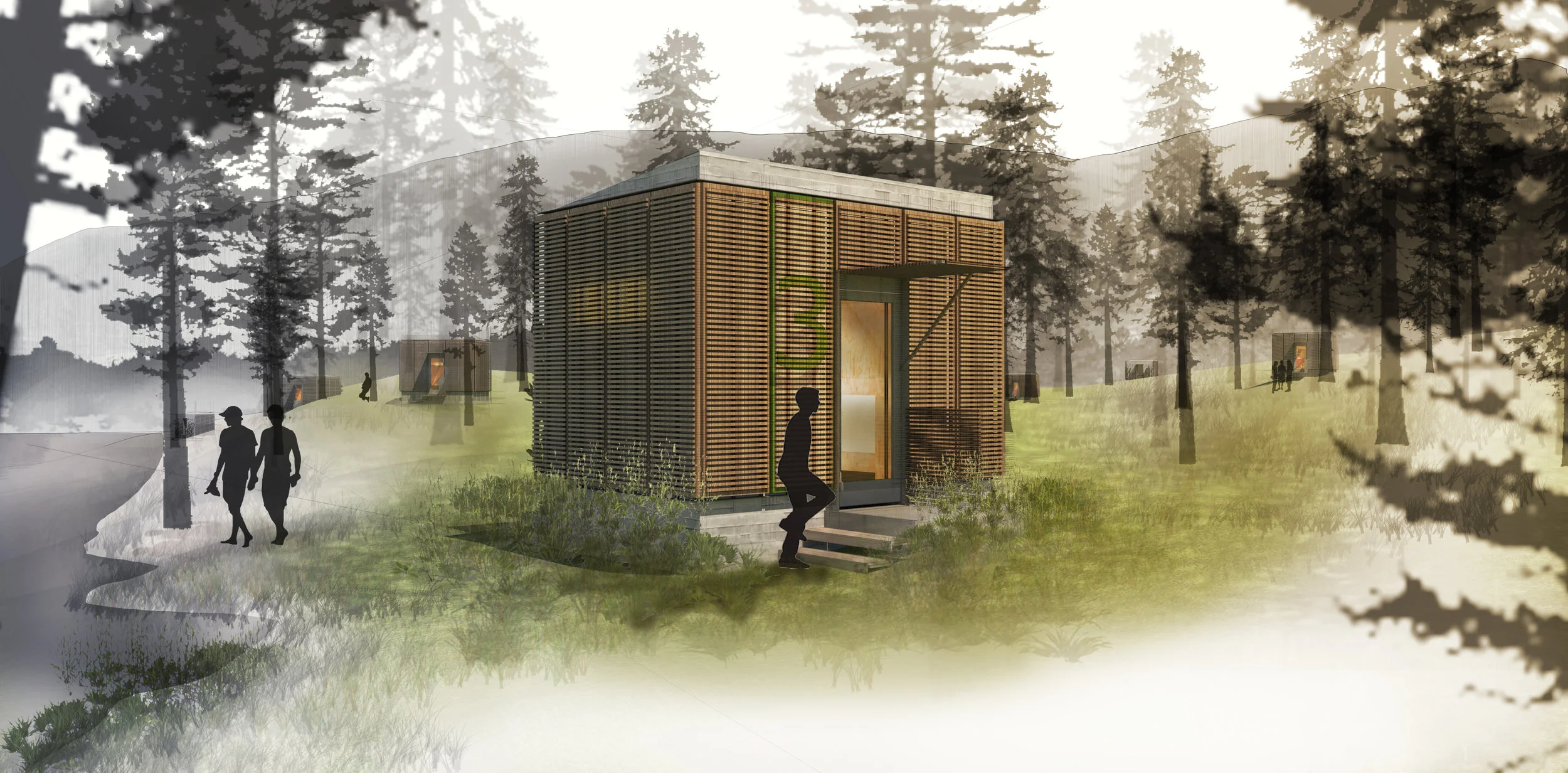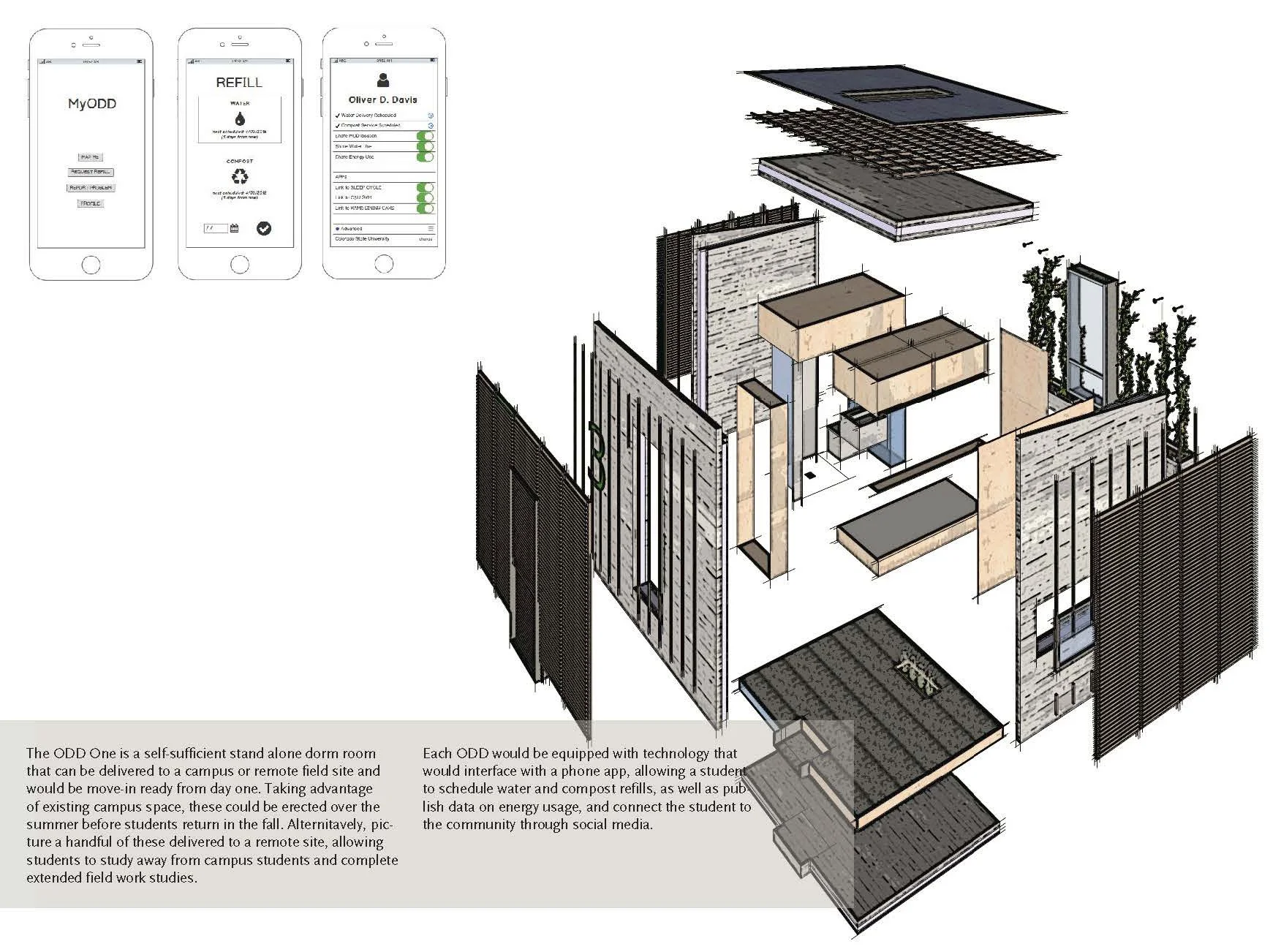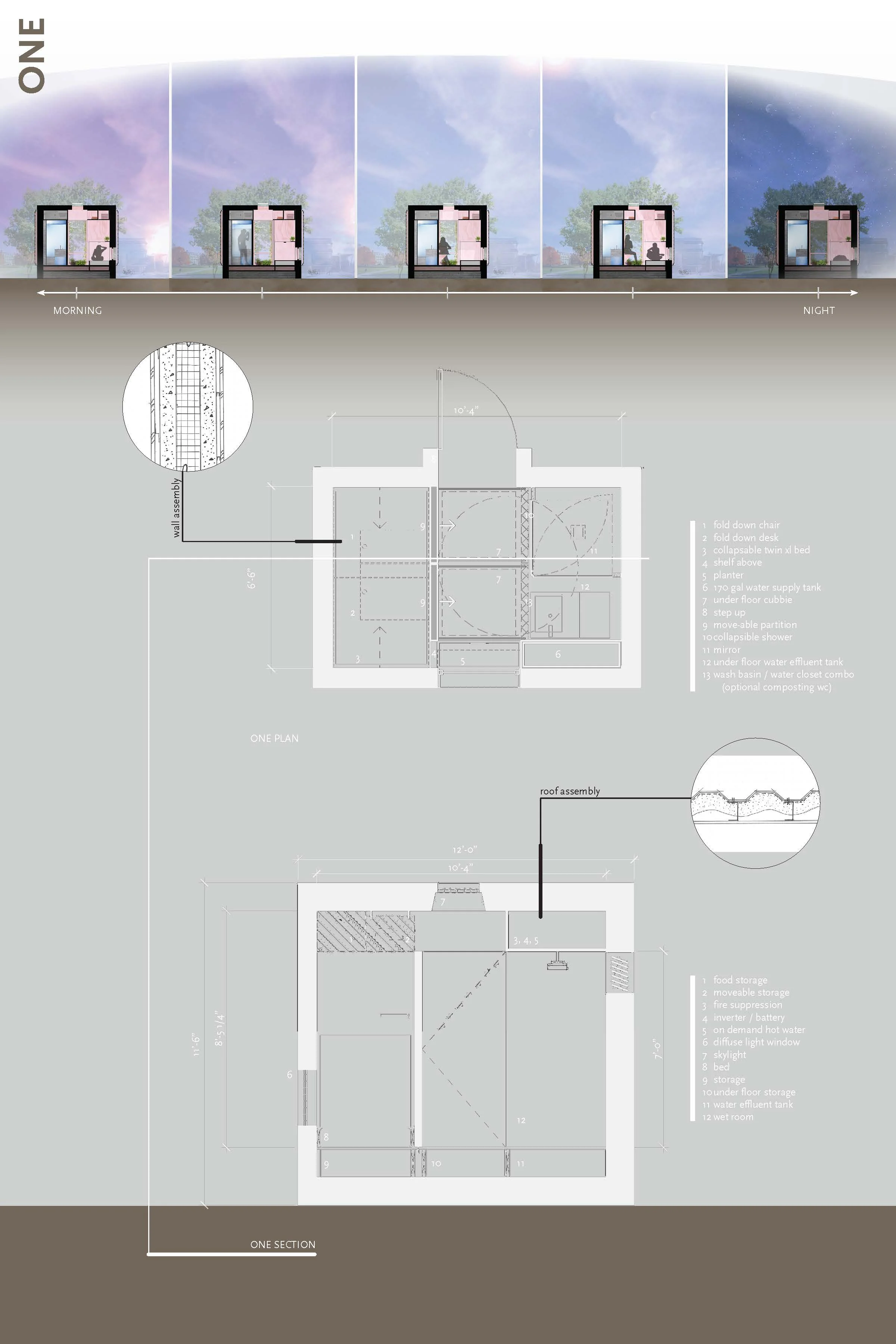THE ODD (on-demand dwelling) PROJECT
University campuses often face overcrowding challenges when more students than expected accept their admissions offer. The enrollment disparity leaves housing providers with limited options for accommodating students in a short time-frame. To address the issue, the ODD (On Demand Dwelling) Collective, a salutogenic design experiment, aims to provide on-demand housing for students while also cultivating wellness living and lifestyle principles.
Wellness was approached through addressing the 6 Residence Life Intercessions including selective (or strategic) silence, light quality, risk and reward, comforts of home, the physical dimension, and connection with nature.
The ODD modules are completely self-sufficient avoiding the need to connect to campus infrastructure or utilities. The modules can be adapted to serve other on-demand needs such as disaster relief housing, affordable teacher housing, homeless housing and remote job site housing (among others) and will be designed, built, and operated within the framework of the 2030 Protocol.
In the ODD Collective, three different modules serve as a kit of parts, able to be combined and arranged in a variety of configurations. The sleep module provides the user with a sanctuary for sleep; it is a refuge that can be personalized for the user’s comfort. Community modules give the student a place to occupy outside of their room and build relationships with their neighbors. All modules provide access to light, a connection with the outside, and will be built out of quality materials.
The ODD One is a self-sufficient, stand alone living unit that can be delivered to a campus or remote site and would be move-in ready from day one. In a campus example, the One can take advantage of existing campus space and could be placed over the summer before students return in the fall. Alternatively, picture a handful of these delivered to a remote site, allowing students to study away from campus and complete extended field work studies. Faculty, staff, and working professionals could use the ODD One to support transitional housing needs.
Divided into three zones, the movable storage and partitions allow the compact space to accommodate living, sleeping, and bathing within 68 net sf. Each ODD would be equipped with technology that interface with a phone app, allowing a user to schedule water refills and compost pick-ups, as well as publish data on energy usage, and connect the student to the community through social media. Each ODD is designed to supply 100% of its own energy needs as well as support healthy living.
